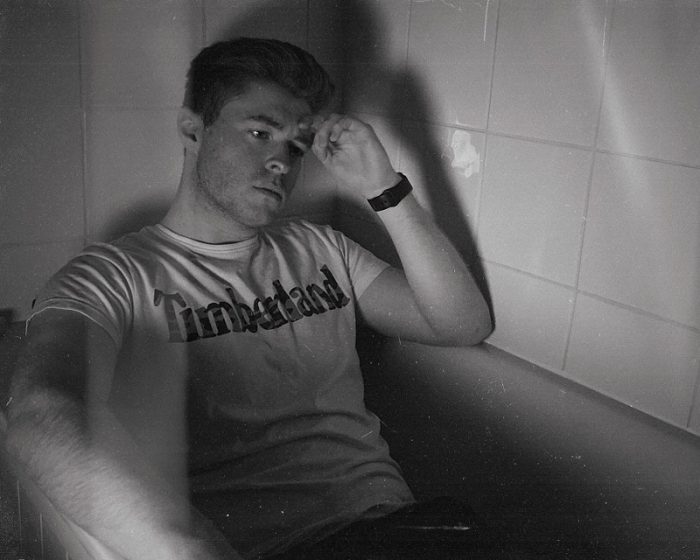How determining your “trigger condition” can allow you to take more effective action.
As part of the recovery from my breakdown, I had to take part in a six-week Coping Strategies course led by two clinical psychologists.
Since the workshops took place whilst COVID-19 was at its peak in the U.K., the sessions had to be completed via Zoom. Although this undoubtedly influenced their effectiveness, the process was still an invaluable one.
It was the height of lockdown and human interaction was rare. Knowing that no matter what else happened that week I would spend two hours speaking to the course leaders and five other participants gave me something to look forward to and kept me sane. Mental illness fosters social isolation, as does a global pandemic—without the course, my social skills would not only have atrophied and died, but my well-being would have plummeted.
For that reason alone, I’ll always be thankful for those weekly, two-hour-long hits of humanity.
But back to the reason for the course itself: I had a breakdown which was, in turn, exacerbated by my clinical depression. Given those aspects, I didn’t have high hopes at the outset. The workshops covered such topics as positive thinking and breathing exercises, and appeared insubstantial. Considering what had happened to me, and my underlying mental illness, the content seemed lightweight.
It all seemed worthy enough, but I wasn’t sure how deep breathing would help me when I was curled up on the bathroom floor at 3 a.m. crying.
However, as it transpired, I was (blessedly) wrong.
Perhaps it was in large part due to how the content was delivered, and the fact that I was a bit further on in my recovery and no longer weighed down with complete pessimism, but those simple concepts finally resonated with me. For the first time, I was ready to embrace these ideas instead of automatically dismissing them due to depressive negativity.
Lucky for me, I also had two compassionate and patient mental health professionals who took their time in explaining them, ensuring the messages landed.
But, the biggest takeaway didn’t come from the official course material, it came out of a brief chat I had with one of the psychologists during a short break. And it’s the idea of “trigger conditions.”
During this conversation, I told the psychologist that, although I was serious about trying all the various techniques we were studying, my confidence was also low. I’d been fighting depression for decades with little discernable success; I wanted all of this to work, but part of me had the sneaking suspicion it wouldn’t— I’d been here too many times before.
No matter what I tried, depression never fully left me. Anxiety came and went, but my low mood was an ever-present guest that I could never seem to fully evict.
You could argue that this negativity was simply the depression talking. You could also say that I was being unrealistic; I have clinical depression— it’s never going to pack its bags and leave forever. I might learn to fight it more effectively, I might implement strategies that make my “bad” episodes less deep and frequent, but I had to accept that this was a part of me. It wasn’t about vanquishing it for good; it was about learning to live with it.
However, the psychologist didn’t say either of those things. She asked me a question—one I had never been asked before.
“What occurs first, your depression or your anxiety?”
At first, it seemed like a stupid question. I have clinical depression. Of course that comes first. Silly.
Except, the more I thought about it, the more I realised I was wrong.
My depression didn’t arrive first. It never did. My anxiety was always first on the scene. I would feel anxious about a situation, then—at some point—depression would pitch up. And once my “dark passenger” had turned up, anxiety would slink off, its work done.
Once you have an official diagnosis, it’s easy to let it overpower everything else. It can literally be all you see. And my clinical depression had polluted my entire perspective. I hadn’t just utterly underplayed the importance of my anxiety; I’d never even seen it. Now, the longer I considered it, the more I realized I’d been fighting on the wrong front.
Although this might seem a trivial observation to you, my world had just turned on its axis.
Depression and anxiety are a team. Even if you only have a clinical diagnosis of one of these conditions, the chances are you still suffer from both.
If you have depression, then feeling anxious is common— low mood can trigger anxious thoughts, even if you do not have an anxiety disorder. Initially, you may be trapped on the sofa, wrapped in a duvet, stricken by depression. However, at some point, your mind will turn to the things you’re not doing.
You might need this temporary hiatus, but that doesn’t stop your brain from reminding you of all the things you’re currently letting slide. The overwhelm kicks in, and now you’re feeling anxious as well. Thanks.
The same happens with anxiety. It’s a short path from feeling anxious about a certain situation to then blaming yourself for being “weak” for not being able to face your fears, along with all manner of other nasty, depressive thoughts. Backing out of a social event because you’re feeling anxious is one thing; you really don’t need the guilt and sense of personal failure that pops up later thanks to depression’s eventual arrival. So kind.
As I have clinical depression, I had always assumed it was my low mood that needed to be targeted— that’s where my focus had to be. And in many respects, it does. Whether it’s through trying to build more positive neural responses by practising gratitude or with meditation or eating a diet rich in anti-depression oxidants or exercising regularly, depression is my primary fight.
However, it’s not the only one.
Because despite the hefty diagnosis, anxiety is my trigger condition. My “bad” episodes don’t begin with low mood—they start with feeling anxious. Therefore, it didn’t matter how much effort I was putting into fighting depression. Unless I worked harder to remove my depression’s trigger, I was always leaving the door open for it to enter. Despite not having a diagnosis of anxiety, that was what I needed to focus on.
This idea was liberating. To be perfectly honest, I was bored with my depression. It loomed large over every aspect of my life, and I had long got tired of its continual presence. I somehow related everything I did back to fighting it. It was tiresome. But now I could turn my thoughts to something else. A new challenge.
I still had to be vigilant and do the work. However, I didn’t have to obsess over it. As long as I ate healthy, slept well, meditated, had a meaningful social life, took my medication, and exercised, the depression would largely take care of itself.
I had to be aware, but not 24/7.
It was the blasted anxiety I had to face. If I could negate that, then my depression would be triggered less. Again, I couldn’t just stop it from ever arriving in my mind. But by working on the trigger, I could stop it from appearing so regularly.
I didn’t know that I needed this change of perspective, but once I did, it invigorated me. It also allowed me to bestow some compassion on myself, and that’s nectar to the soul. I hadn’t failed to beat my depression because I was a failure, or because I hadn’t tried hard enough (God knows I had). It was in part due to not fighting the “right” things. I didn’t have to work any harder; I had to work smarter.
I had to fight my anxiety.
The great thing is that you employ many of the same tools to combat anxiety as you do depression; you just use them differently. And I already knew the majority of them.
For example, much of my depression is rooted in chronically low levels of self-worth, so I’ve long used meditation to foster a greater sense of self-esteem. It helped, but never to any profound degree. However, using meditation to target my anxiety, relax, and de-stress has made an immeasurable difference.
When my monkey mind is busy chattering away, it’s also distracted. It’s so frantic it doesn’t think to pull up the drawbridge, and so depression sneaks in. But when my mind is less anxious, calmer, the depression is trapped outside. It’s only a subtle refocusing and change of direction, but it’s working.
Not least because, indirectly, it’s also replenishing my self-esteem and combating my depression. Now that I’m less anxious, I’m also depressed less often, so I spend less time trapped in that infuriating cycle of self-hate and beating myself up. Freed from continual self-blame, my self-worth is slowly growing, chipping away at the power my depression has.
I can’t cure my depression simply by loving myself more, but I will certainly weaken its innate strength. Depression needs lots of things to thrive, but its sufferer must have low self-esteem—that’s depression’s oxygen. Remove that and we’re depriving it of air.
The last session of that course took place one year ago. Since then, I’ve only had one major depressive episode.
One.
I’ve been “down” many times but, given the added demands that coronavirus has wrought, I’ve chosen to practice a bit of self-compassion. I’m not being harsh on myself for finding the last year hard—everyone has found it tough. But, considering that I used to have at least one major episode every month, one solitary incident is some progress. I have made huge changes to my life after decades of ineffectual medication, finally finding the right pills for me.
However, at the heart of my recovery is that one simple question:
“Which occurs first, your anxiety or your depression?”
It was a question I’d never asked. But it has changed my life. It’s made my recovery less painful and more effective. It has blunted the edge of my depression and has literally made me happier.
I’m not working any less than I used to. I’m just concentrating on the things that trigger my mental illness instead of fixating on the illness itself. I’m working smarter, and more effectively.
And when you’re fighting mental illness, that’s probably the best thing you can do. It’s demanding enough anyway; you honestly don’t have the time or energy to invest your efforts in the wrong place.
Target the triggers. It works.
~









Read 12 comments and reply